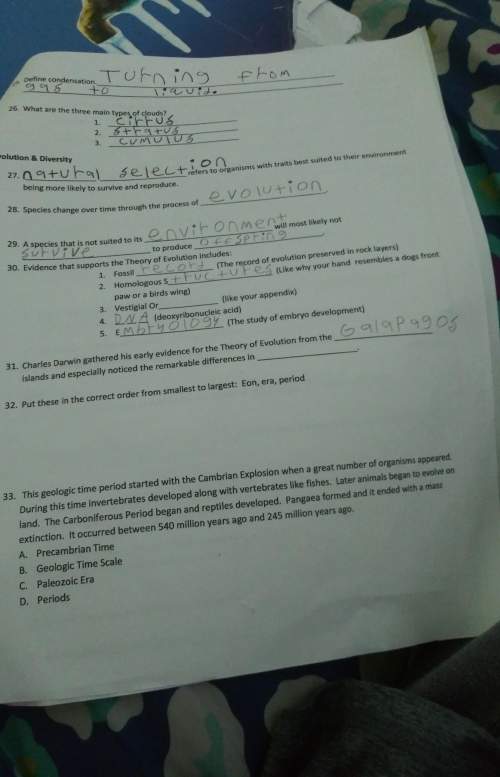
Physics, 25.11.2021 05:20 1031kylepoe03
An object with a mass of 2kg moving with a velocity of 8m/s collides with a 3 kg object moving in the same direction at a velocity of 6m/s. What is the total initial momentum? *
19 kg-m/s
34 kg. m/s
54 kg. m/s
288 kg-m/s

Answers: 3
Another question on Physics

Physics, 21.06.2019 16:10
Avoltage source vs = 10 v is in series with a resistor of 10 kohm. if the source transformation theorem is applied, what will the value of the current source be in ma ?
Answers: 1

Physics, 22.06.2019 15:00
What happens when a rubber rod is rubbed with a piece of fur?
Answers: 1

Physics, 22.06.2019 15:40
Question 1 what is amperage? is the rate of doing work. is the rate of flow of protons in electric current. represents the amount of pressure behind electron flow. is the rate of flow of electrons in electric current. 2 points question 2 what is voltage? is the rate of doing power. represents the amount of pressure behind electron flow. is the rate of doing work. is the rate of flow of electrons in electric current. 2 points question 3 what is power? is the rate of flow of protons in electric current. is the rate of flow of electrons in electric current. is the rate of doing work. represents the amount of pressure behind electron flow. 2 points question 4 if we multiply volts times amps we get what? power circuit work current 2 points question 5 what are two ways alternating currents are similiar? in both ac and dc electrons flow in the same pattern. in both ac and dc, the flow of electrons changes directions back and forth. both ac and dc are only possible in certain materials with atoms that will allow electron flow. both ac and dc involve the flow of electrons. 4 points question 6 how does the flow of electrons flow in an alternating current? the flow of electrons is always slower in an alternating current than within a direct current. the flow of electrons is not constant and forward; it changes direction back and forth. electrons flow from from a higher affinity to that of a lower affinity. electron flow is constant and only in a forward direction. 2 points question 7 what is the flow like in a direct current? the flow of electrons is not constant and forward; it changes direction back and forth. the flow of electrons is constant and only in a forward direction. the flow of electrons go from a higher affinity to a lower affinity. the flow of electrons are always faster in a direct current. 2 points question 8 how is an electric current able to flow? electrons flow from the higher affinity to lower affinity and electrical current is generated. protons flow from the higher affinity to lower affinity and electrical current is generated. the movement of protons from one atom to another leads to an electric charge. the movement of electrons from one atom to another atom in a line results in a flow of electric current. 2 points question 9 how do electrons move from the two different types of metal in a battery? protons flow from the metal with the lower affinity to the metal with higher affinity and electrical current is generated. electrons flow from the metal with the lower affinity to the metal with higher affinity and electrical current is generated. electrons flow from the metal with the higher affinity to the metal with lower affinity and electrical current is generated. protons flow from the metal with the higher affinity to the metal with lower affinity and electrical current is generated.
Answers: 2

Physics, 23.06.2019 00:30
Why does the equilibrium position of the spring change when a mass is added to the spring? will the mass oscillate around the new equilibrium position of the spring or the previous position without a mass attached to the spring? if the equilibrium position of the spring changes by 20 cm (assuming no initial mass) when a mass is added to the spring with constant 4.9 kg/s^2, what is the mass of the object attached to the spring?
Answers: 2
You know the right answer?
An object with a mass of 2kg moving with a velocity of 8m/s collides with a 3 kg object moving in th...
Questions

Mathematics, 14.01.2021 18:50

Mathematics, 14.01.2021 18:50


History, 14.01.2021 18:50


English, 14.01.2021 18:50


Health, 14.01.2021 18:50


History, 14.01.2021 18:50


Mathematics, 14.01.2021 18:50

Arts, 14.01.2021 18:50

Computers and Technology, 14.01.2021 18:50

Mathematics, 14.01.2021 18:50

History, 14.01.2021 18:50


Physics, 14.01.2021 18:50





